The scientific program includes keynotes by leading researchers in the field. (Edward Feil and Karsten Borgwardt).
Program
Times are provided for CDT time zone.
Wednesday, 26 July 2023
| 10:30 | CAMDA Welcome | |
| 10:40 | CAMDA Keynote: How can large-scale genomics be used to manage antimicrobial resistance in non-clinical (‘One-Health’) settings? | Edward Feil, University of Bath, U.K. |
| 11:40 | The Anti-Microbial Resistance Prediction and Forensics Challenge - Introduction | Paweł P. Łabaj, Małopolska Centre of Biotechnology, Jagiellonian University, Kraków, Poland |
| 12:00 | Antimicrobial Resistance Prediction and Forensics | Amay Ajaykumar Agrawal, Helmholtz Institute for Pharmaceutical Research Saarland, Germany |
| 12:20 | Lunch | |
| 13:50 | Geolocation of Antimicrobial Resistance Markers in Metagenomic Surveillance Data | Dimitri Perrin, Queensland University of Technology, Australia |
| 14:30 | Detecting Bacteriophages Associated with Antimicrobial Resistance in the Presence of Confounding Factors | Shoumi Sarkar, University of Florida , U.S.A. |
| 14:50 | Antimicrobial Resistance in Diverse Urban Microbiomes: Uncovering Patterns and Predictive Markers | Rodolfo Toscan, Małopolska Centre of Biotechnology, Jagiellonian University, Kraków, Poland |
| 15:30 | Break, Open Networking Time | |
| 16:00 | CAMDA Invited - Data diversity in Antimicrobial Resistance (AMR) | Derry Mercer, BIOASTER, Lyon, France |
| 16:30 | Antimicrobial Resistance Prediction and Forensics CAMDA 2023 | Mirna Vázquez Rosas Landa & Adriana Haydeé Contreras Peruyero CCM & IMAR, Mexico |
| 17:10 | Exploratory analysis of antibiotic microbial resistance and its correlation with codon usage of microbes | Antonio Neme, UNAM IIMAS, Mexico |
| 17:20 | Evaluating the Robustness and Reproducibility of RNA-Seq Quantification Tools | Serghei Mangul, University of Southern California, Los Angeles, U.S.A. |
| 17:30 | A systematic assessment of the completeness of TCR databases across Mus musculus strains | Yu-Ning Huang, University of Southern California, Los Angeles, U.S.A. |
| 17:40 | Data Lakehouse to support the development of AI models for predicting patient clinical response to targeted and immuno-therapies | Elodine Coquelet, The French Alternative Energies and Atomic Energy Commission (CEA), France |
| 17:50 | 1st day summary | |
| 18:00 | Poster Session | |
| 19:15 | Leaving for CAMDA dinner |
Thursday, 27 July 2023
| 10:00 | CAMDA Welcome | |
| 10:10 | CAMDA Keynote: Predicting medical complications in intensive care units using machine learning | Karsten Borgwardt, Max Planck Institute of Biochemistry, Martinsried, Germany |
| 11:10 | The Synthetic Clinical Health Records Challenge - Introduction | Joaquin Dopazo, Andalusian Public Foundation Progress and Health-FPS, and University Hospital Virgen del Rocío/CSIC/University of Sevilla, Seville, Spain |
| 11:30 | Synthetic Clinical Health Records Challenge - the background analysis | Carlos Loucera, Andalusian Public Foundation Progress and Health-FPS, and University Hospital Virgen del Rocío/CSIC/University of Sevilla, Seville, Spain |
| 11:50 | Lunch and Posters | |
| 13:20 | CAMDA 2023 Challenge: Predictions of Pathology before Diagnosis from Electronic Health Record Visits | Malik Yousef, Zefat Academic College, Israel |
| 14:00 | Future of Synthetic Clinical Health Records challenges | Wenzhong Xiao, Stanford Genome Technology Center, and Massachusetts General Hospital, Harvard Medical School, Boston, USA |
| 14:10 | Future of Anti-Microbial Resistance Prediction based challenges | Paweł P. Łabaj, Małopolska Centre of Biotechnology, Jagiellonian University, Kraków, Poland |
| 14:20 | Hypothyroidism Genetics: Functional Insights from Gene-Based Association Studies in Large Populations | Michal Linial, The Hebrew University of Jerusalem, Israel |
| 15:00 | Break, Open Networking Time | |
| 15:30 | CAMDA Trophy ceremony | |
| 15:50 | ISMB Proceeding: PPAD: A deep learning architecture to predict progression of Alzheimer’s disease | Serdar Bozdag, University of North Texas, Denton, U.S.A. |
| 16:10 | CAMDA summary and closing remarks |
Keynotes
Edward Feil, PhD
The Milner Centre for Evolution, Department of Life Sciences, University of Bath, U.K.
How can large-scale genomics be used to manage antimicrobial resistance in non-clinical (‘One-Health’) settings?
Genomics has proved a powerful tool for the recognition and management of outbreaks caused by bacterial pathogens, such as Klebsiella pneumoniae or Staphylococcus aureus, within hospitals and other health care settings. Of these outbreaks are caused by strains that are resistant to multiple antibiotics, which can significantly increase mortality. For many species, resistant strains are also present outside of hospital environments, for example in agricultural settings (eg dairy farms) and the wider environment (eg soil, rivers). The recognition that resistance in these settings can also pose either direct or indirect risk to public health, has led to a widespread adoption of the ‘One Health’ framework, which explores the interconnectedness between human, animal and environmental spheres. Different types of genomics approaches can be used to detect the presence of antibiotic resistant strains, or the genes that confer resistance, in such settings. However, there are ongoing challenges in inferring the rates of routes of transmission in these complex environments, and the commensurate risk to public health. I will review the different approaches used, and how the current evidence paints a mixed picture dependent on genetic, ecological and social contexts.
About the speaker: Prof Feil’s research career has encompassed the evolution, population genomics and molecular epidemiology of a broad range of bacterial pathogens of humans and animals.
He was involved with the development and implementation of Multilocus Sequence Typing, a key contribution being the eBURST clustering algorithm [1]. He was joint-first author of a publication in 2010 demonstrating proof of principal for the use of Whole Genome Sequencing for molecular epidemiology [2]. His current research focus on ‘One-Health’ questions of genome diversity, adaptation and Antimicrobial Resistance in the Enterobacteriaceae [3].
2012- Professor (Bacterial Genomics), University of Bath
2005-2012 Associate Professor, University of Bath
2001-2005 MRC Research Fellow (CDA), University of Bath
1998-2001 Post-doc., WTCEID, University of Oxford
1995-1998 Wellcome Trust Prize Fellow, University of Sussex
1992-1995 University of Sussex, PhD (Supervisors; Profs Brian Spratt, John Maynard Smith)
1. Journal of Bacteriology 186(5):1518-30 (2004). 2. Science 22;327(5964):469-74 (2010) 3. Nature Microbiology 7, 2054–2067 (2022).
Karsten Borgwardt, PhD
Department of Machine Learning and Systems Biology, Max Planck Institute of Biochemistry, Martinsried, Germany
Predicting medical complications in intensive care units using machine learning
The ongoing digitalization of clinical health information creates new opportunities for building early warning systems for medical complications. In particular, the rich information that intensive care units record about critically ill patients can be used to develop machine learning-based early warning systems, for instance, for sepsis or for circulatory failure. In this talk, we will describe these opportunities for big data analysis in medicine, and the challenges in creating these predictive systems.
About the speaker: Karsten Borgwardt is Director of the Department of Machine Learning and Systems Biology at the Max Planck Institute of Biochemistry in Martinsried, Germany since February 2023. His work won several awards, including the 1 million Euro Krupp Award for Young Professors in 2013 and a Starting Grant 2014 from the ERC-backup scheme of the Swiss National Science Foundation. Prof. Borgwardt has been leading large national and international research consortia, including the “Personalized Swiss Sepsis Study” (2018-2023) and the subsequent National Data Stream on infection-related outcomes in Swiss ICUs (2022-2023), and two Marie Curie Innovative Training Networks on Machine Learning in Medicine (2013-2016 and 2019-2022).
Sign up to our low-volume announcements mailing list!
Check also our open forum for general discussions , including ideas and the development of future of contest data sets and challenges!
![]() Follow us in twitter
Follow us in twitter

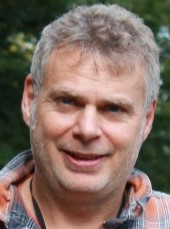
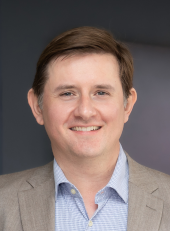
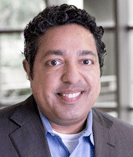
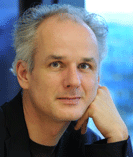

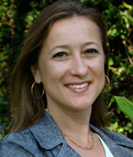


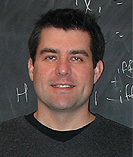
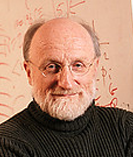


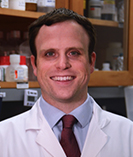

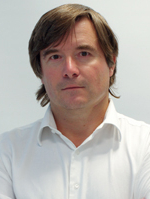
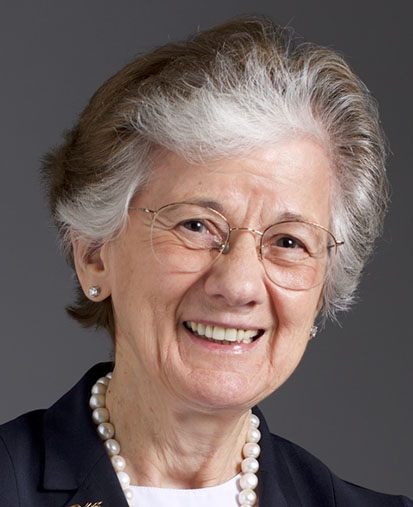
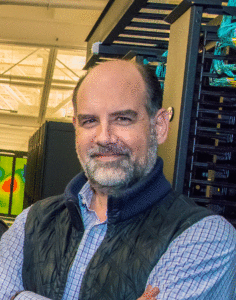






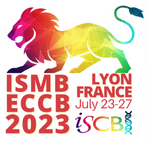



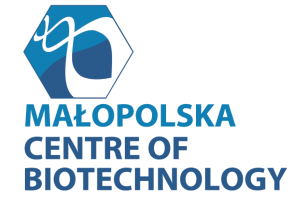

STAY CONNECTED
Tweet